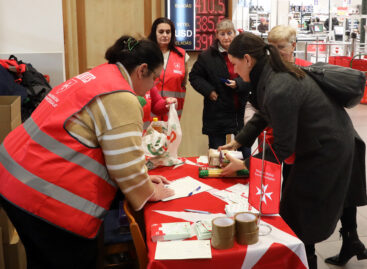The catch-up settlements program already helps in 178 places in the country
The Catching Up Settlements program, operated by the Hungarian Maltese Charity Service and 28 other participating organizations, already provides assistance in 178 locations in the country, among other things, in housing, health care, education, and helping jobseekers get back into the world of work.

Former head of state János Áder, chairman of the board of trustees of the Kék Bolygó Climate Protection Foundation, discussed this in the latest episode of his Kék bólygó podcast, which was published on Monday and is also available on the most popular video sharing portal, with Prime Minister’s Commissioner Miklós Vecsei, vice president of the Hungarian Maltese Charity Service.
János Áder recalled in the latest episode “From the bottom to the top – catch-up settlements and sustainability” that in 2019, the catch-up settlements program was launched in 31 settlements with the help of 8 organizations, which helps the people living in the settlement “from conception to employment”.
Today, work is carried out in 178 locations with the participation of 29 organizations; according to a government decision, the goal is for 300,000 people in 300 settlements to be part of the program within a few years
he added.
Miklós Vecsei said that together with the Hungarian Baptist Charity Service, the Ecumenical Aid Organization, the Reformed Charity Service and the Catholic Charity, they focused on settlements and sent people with the appropriate knowledge to those that have a chance to catch up.
He emphasized that this is “a catch-up based on a diagnosis”, with which they give a vision of the future to the people living there. The catch-up of these settlements is also inevitable from an economic point of view, given that in the next two decades, around 7-8 percent of children will be born in these places – he emphasized.
János Áder stated that the goal is not to lose sight of a single child, and that job seekers who are currently considered to have no chance become potential employees.
Related news
Blue Planet – Ancient grains have more favorable physiological and environmental effects than industrially grown wheat
🎧 Hallgasd a cikket: Lejátszás Szünet Folytatás Leállítás Nyelv: Auto…
Read more >One hundred thousand smiles in ten years – The 10th Christmas SmileElves campaign has ended
🎧 Hallgasd a cikket: Lejátszás Szünet Folytatás Leállítás Nyelv: Auto…
Read more >Related news
NAK President: more than 120 thousand people signed the agricultural petition in one month
🎧 Hallgasd a cikket: Lejátszás Szünet Folytatás Leállítás Nyelv: Auto…
Read more >









